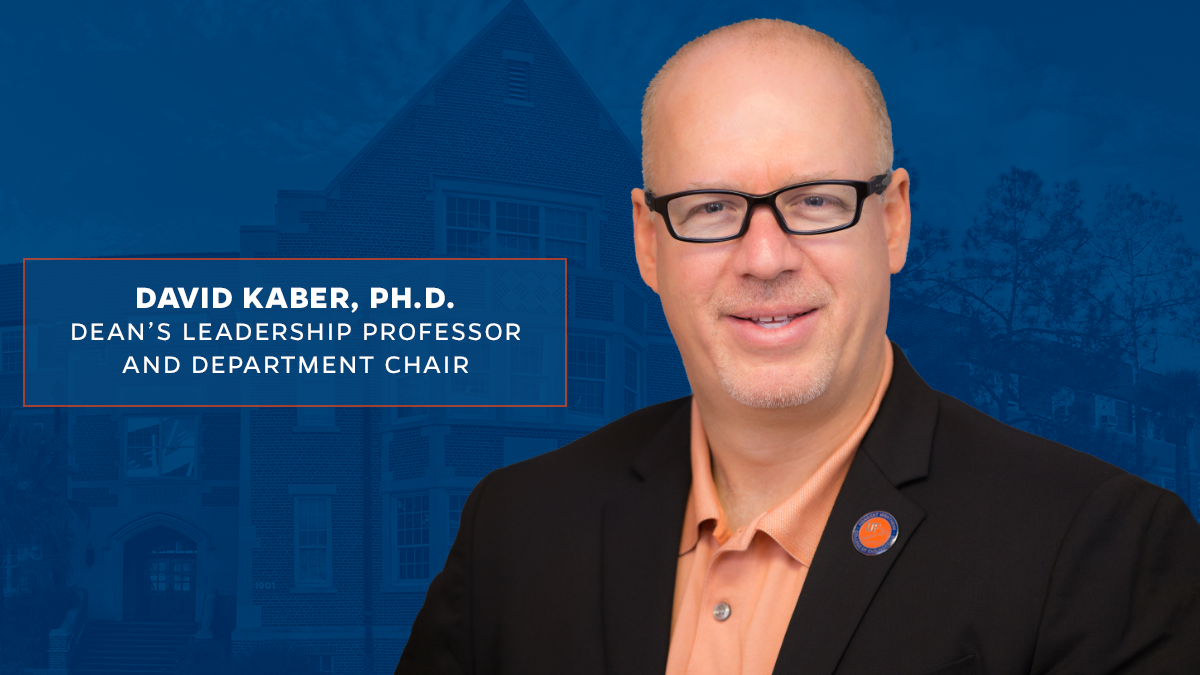David Kaber, Ph.D., Dean’s Leadership Professor and chair of the Department of Industrial & Systems Engineering (ISE) at the University of Florida, has been elevated to Fellow status in The Institute of Electrical and Electronics Engineers (IEEE). Dr. Kaber is being recognized for his “modeling and analysis of human-automation interaction and human-machine interface design in complex systems.”
IEEE Fellow is the highest grade of IEEE membership with only one-tenth of one percent of the total voting membership being eligible in each year. This award is recognized by the community as a prestigious honor and an important career achievement.
“IEEE and the Systems, Man & Cybernetics (SMC) Society are key organizations in advancing engineering science in critical areas, such as human-machine systems and human-AI teaming,” Dr. Kaber said. “My interests have been to contribute to modeling and design approaches, and I have been fortunate to be able to do so through SMC Society publications, meetings and administration. A professional connection with IEEE has had a substantial positive impact on my career, and I encourage all early career faculty to start now with IEEE.”
His primary area of research interest is human-systems engineering with a focus on human-automaton interaction, including design and analysis for situation awareness in complex human in-the-loop systems. Domains of study for his research have included physical work systems, industrial safety systems, robotic systems, transportation systems and healthcare.
Prior to joining UF, Dr. Kaber was a distinguished professor of industrial engineering at North Carolina State University where he also served as the Director of Research for the Ergonomics Center of North Carolina. He is a previous Editor-in-Chief of IEEE Transactions on Human-Machine Systems. He is a Fellow of the Institute of Industrial Engineers and a Fellow of the Human Factors & Ergonomics Society. Dr. Kaber is also a Certified Human Factors Professional (BCPE) and a Certified Safety Professional (BCSP).
He has also received multiple research grants including the Human-Centered Computing Research Award from the National Science Foundation, and funding from NASA’s Langley Research Center Aviation Safety Program to study the impact of aviation display clutter on overall pilot performance.
Dr. Kaber received his Bachelor of Science degree in 1991 from the University of Central Florida, as well as his Master of Science in industrial engineering in 1993. Additionally, Dr. Kaber earned his Ph.D. in industrial engineering in 1996 from Texas Tech University.
